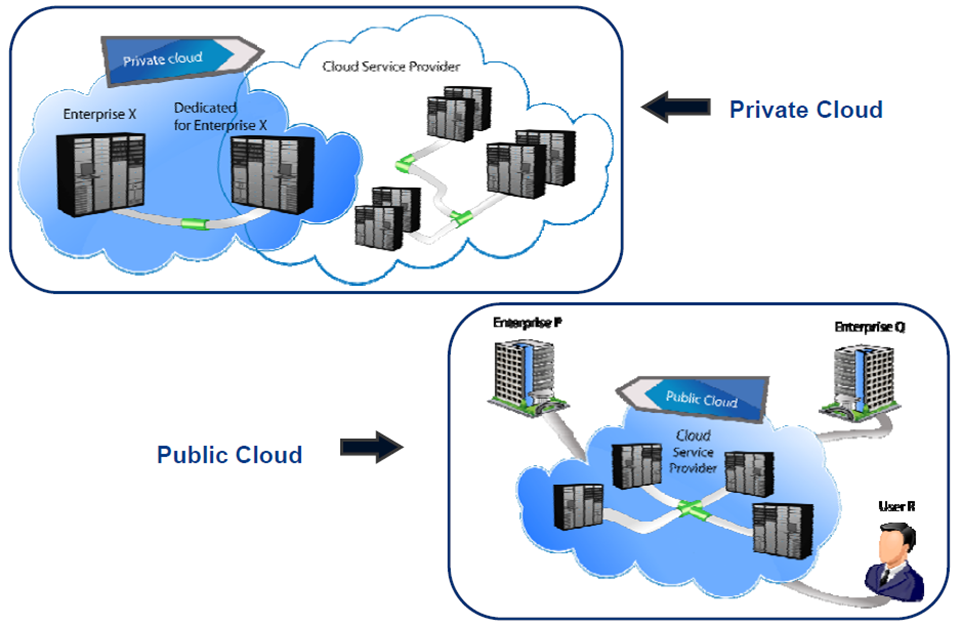The debate surrounding the deliverability of cloud computing is coming to a close. Businesses have begun to rapidly adopt the use of cloud services, courtesy the ROI this disruptive technology brings to the table. They have finally realized they cannot afford to ignore the cloud.
A Forrester study found that 76% of large enterprises have a formal cloud strategy in place; this means businesses have begun placing their trust in the cloud and are trying to leverage its use to drive business growth.
The reason behind mass cloud adoption is that businesses are experiencing the benefits of the cloud. Lower total cost of ownership (TCO), improved customer support/service, more flexibility to react to changing market conditions, innovation, real- time collaboration amongst employees are just some of the benefits of moving to the cloud. As can be imagined, you, as a business owner, will be doing a big disservice to your business if you are not using cloud based technology to make it more competitive.
If you are planning to sign up for a cloud based service, you can choose from three types of cloud models, namely: Public, Private and Hybrid. One of the important decisions business owners and IT managers must make vis-à-vis cloud migration is about the cloud model they need to choose.
“Is it best to go for a public cloud approach or opt for a private cloud solution?”
“Should I adopt private cloud for my business or consider a hybrid cloud solution?”
The right answers to these questions will determine whether your business is able to make the most of the cloud or not. There are some key factors you need to consider for zeroing in on the right cloud model for your business. Let’s take a look:
First, let’s understand the key differences between Public, Private and Hybrid cloud. You can’t really decide which one is better for your business if you don’t understand exactly how they are different.
A public cloud is cloud infrastructure in which a service provider makes applications, storage and resources available to multiple tenants over the Internet. In this model, the core infrastructure is shared between different businesses, but data and applications are logically separated allowing access only to authorized users. Public cloud services may be free to use or available on a pay-per-use model. Public clouds are offered by well-known providers such as Amazon AWS, Google and Microsoft.

(Source: http://www.quora.com/What-is-the-difference-between-public-cloud-and-private-cloud)
Private cloud (also called internal cloud or enterprise cloud) is cloud infrastructure operated solely for a single organization, whether managed internally or by a third-party service provider, and hosted either internally or externally.
In this model, applications, server or resources are dedicated to a particular business and not shared with other businesses; businesses have control over their data. With a private cloud, you have more control over the cloud infrastructure because it resides on-premise. When you are using a private cloud service, it’s only your business that can access its resources; you are not sharing them with anybody else.
Hybrid cloud is a coming together of two or more clouds (private, community or public). Hence, hybrid cloud covers best of both worlds by offering the benefits of multiple deployment models. Such cloud provides access to both internal and external services provided by internal and external cloud respectively.
The selection of public or private cloud depends on a number of factors like security of data and applications, future scalability, regulatory concerns, company’s budget, etc.
Public cloud has the ability to scale quickly, trigger rapid innovations, reduce investments in costly infrastructure and helps you extend geographic reach whereas private cloud addresses security issues better than public cloud.
Businesses in a sensitive industry like financial services, ecommerce or health that require more data control and security should choose a private cloud infrastructure. On the other hand, businesses that need to deal with less critical data must choose a public cloud service.
SMBs, home based businesses or individual departments in large organizations should go for public cloud if they don’t have any security concerns or are looking for cheaper and scalable services in response to specific business needs.
To put it simply, businesses that have certain IT resources or data that cannot be outsourced for security reasons and who want to be in complete charge of data accessibility, should opt for a private cloud. Typically, it is large organizations that usually see sense in using a private cloud. The flip side of opting for private cloud is you won’t be able to scale up easily and it will add to your overheads.
An enterprise must opt for hybrid cloud when it wants to get the best of both worlds – private and public. For example it has a bunch of data that it doesn’t mind putting on the public cloud, and it also has some highly sensitive data that it wants to keep on-premise by using the private cloud.
This hybrid approach allows a business to take advantage of the scalability and cost-effectiveness of public cloud services and at the same time makes sure that sensitive data is kept absolutely secure in the private cloud.
However, the negative aspect when going for a hybrid cloud solution is that businesses will have to fine tune the lines of collaboration and communication between Public and Private cloud users. You will also have to keep an eye out for some security issues rearing their ugly heads; you might have to invest a lot of time and money in keeping your private cloud secure.
When considering the transition to virtual servers from physical on-site servers, it’s important that you consider which type of cloud service best meets your business goals and requirements. The needs must mainly be prioritized in terms of cost, scalability, security, flexibility and control over data.
After considering all these factors, carefully consider the options available from the cloud service provider to make an informed decision regarding the cloud model that is the best fit for your business.
By Stan Roach





